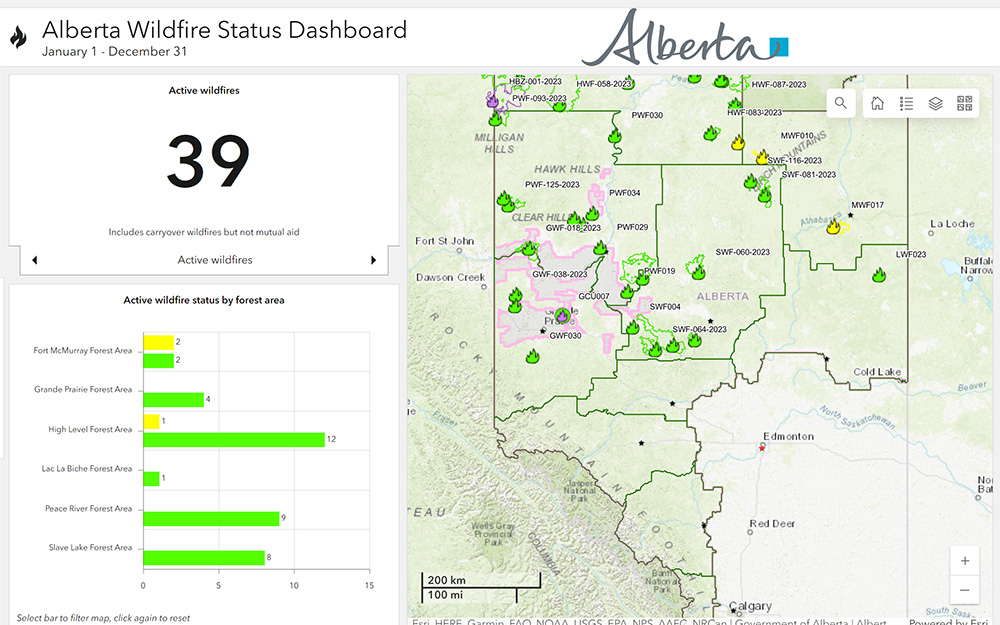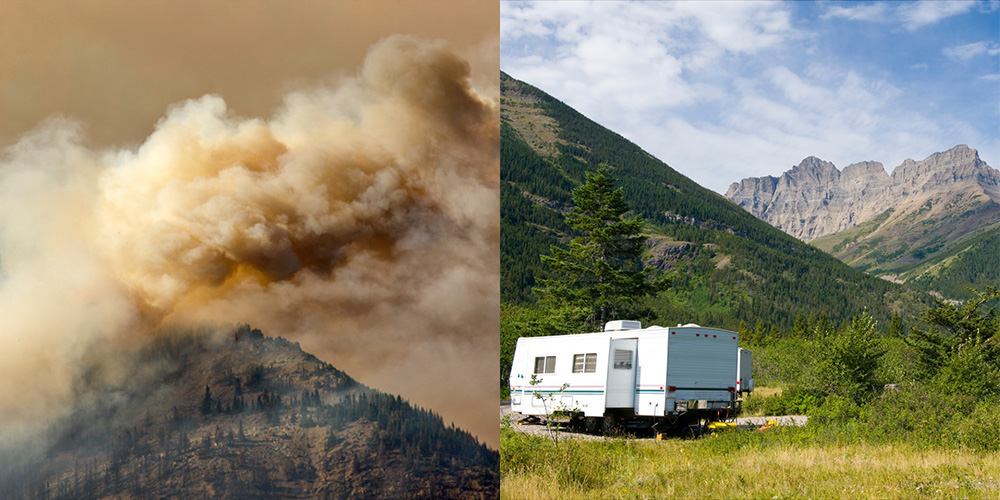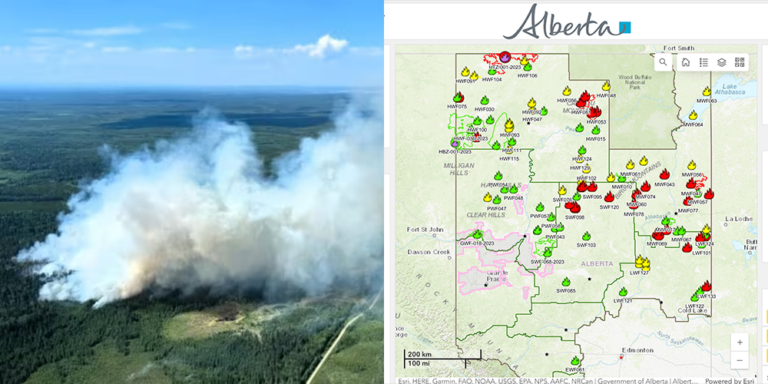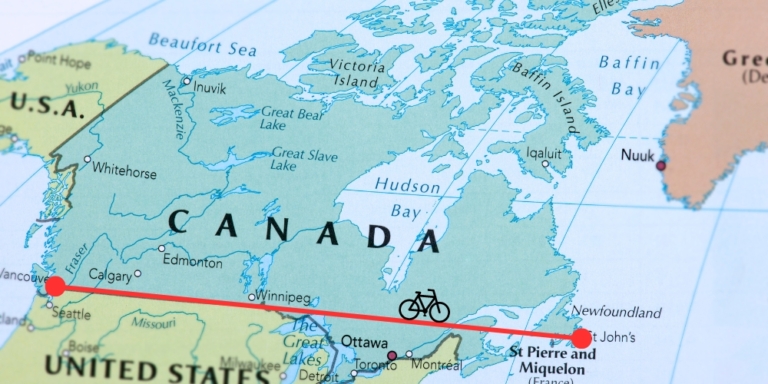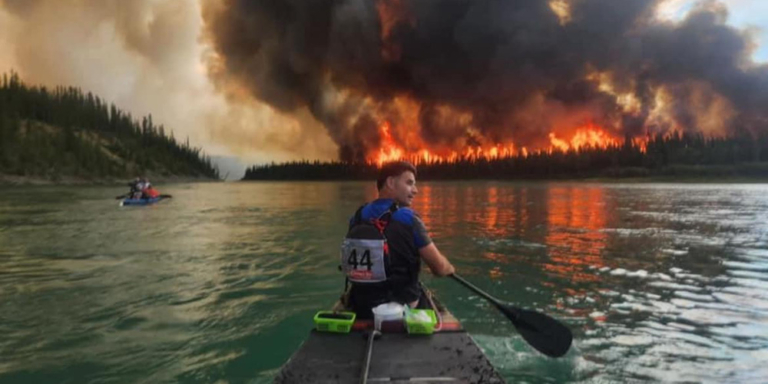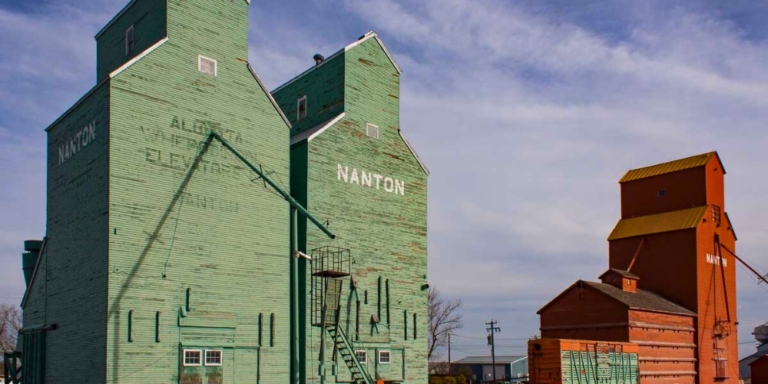The long weekend in May is the ‘official’ start of summer for most Albertans.
Ironically, the weekend is famous for crappy weather, from cold and rainy to even snow.
But Albertans are hardcore, making the most of the usually wet and chilly weekend.
This past weekend was no exception, with cool and wet conditions across the province.
And then, once the long weekend is over, the weather turns nice, and the out-of-province tourists show up.
Visitors like Mexican tourist Roberto Peralti often plan extensive 10-day itineraries to explore the beauty of Calgary, Lake Louise, Jasper, and Banff.
However, increasing wildfire activity due to drought and a warming climate threatens the well-laid plans of tourists like Peralti.
Wildfires can shut down areas or simply cause Alberta’s famous blue skies to turn rusty brown, resulting in cancelled trips and a loss of tourism’s economic benefits.
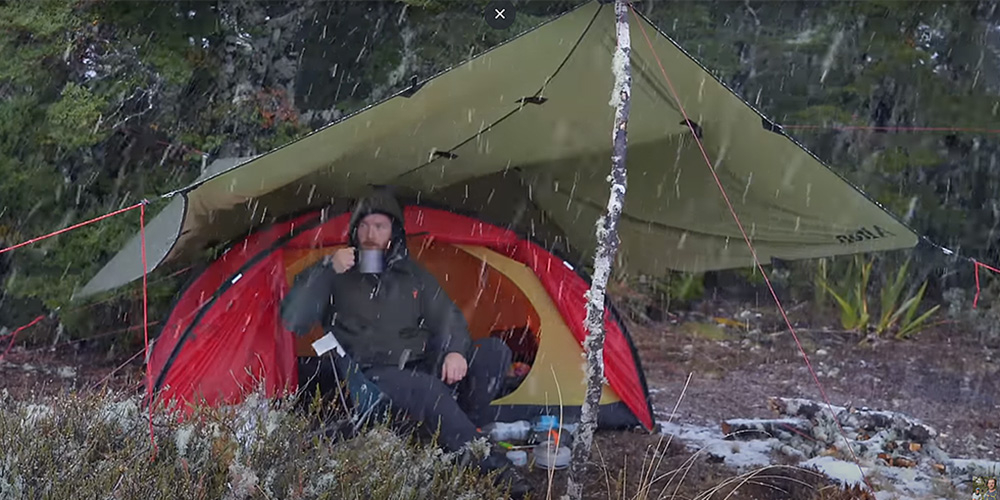

How Bad Is It?
Wildfires have become an increasingly significant concern for Alberta’s tourism sector.
Last year, wildfires shrouded Alberta’s mountains in smoke, leading to cancellations and financial losses.
Alpine Helicopters in Canmore, for instance, grappled with a staggering 50 cancellations on some days, a stark reality when wildfire smoke hampers visibility.
Brad Paul, the company’s tourism and marketing manager, mentioned that persistent smoke results in lost revenue while they try to reschedule flights.
The impact of wildfires is not confined to immediate cancellations.
A survey by Destination Canada revealed that more than half of Americans have reevaluated their travel arrangements to Canada due to wildfires. This trend persists after last year’s unprecedented wildfires.
This perception is exacerbated by Canada’s vast geography, leading international travellers to assume the entire country is affected by wildfires when only specific regions are impacted.
Tourism officials emphasize the importance of accurate, region-specific information to counteract these misconceptions.
Beth Potter, president of the Tourism Industry Association of Canada, stressed the need to communicate that not all parts of Canada are affected by wildfires.
Despite these efforts, the smoky haze that can drift across provinces remains a deterrent for many potential visitors.


Not Just a Mountain Parks Issue
Remote locations, such as Andrew Lake Lodge in northeastern Alberta, face unique challenges.
The lodge attracts visitors from across the country, the U.S., Europe, and Asia who want to experience fishing, hunting, wildlife and aurora viewing in a pristine wilderness location.
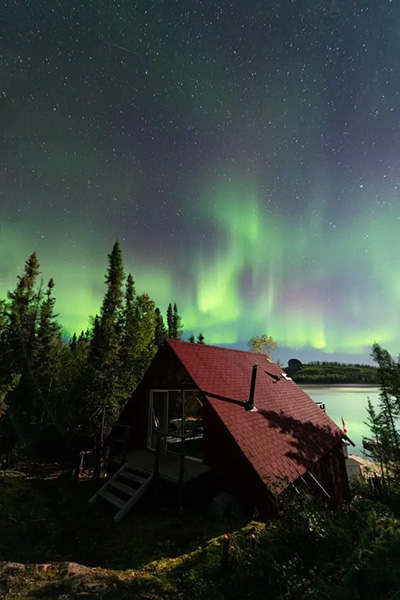

Owner Dan Wettlaufer explained that their operations depend on fly-in and fly-out access, which can be severely disrupted by wildfires.
Wettlaufer acknowledged that the wildfire currently burning near Fort McMurray could stifle this year’s May long weekend and the start of the summer tourism season.
Fortunately, over the weekend, the fire was classified ‘as held,’ and the evacuation order was lifted.
Although the lodge can reroute visitors through different locations, the unpredictability of wildfire activity complicates planning and can lead to cancellations or rescheduling. Wettlaufer also highlighted concerns about the broader reputational damage to Canada’s tourism industry.
Over 100,000 square kilometres of Canada burned during last year’s wildfire season, the worst on record.
Such events affect immediate travel plans and also influence future tourism.
Michael Ballingall, senior vice president at Big White Ski Resort in B.C.’s Okanagan Valley, expressed worries that forecasts for a severe wildfire season in 2024 might deter visitors.
The region, which offers summer activities like mountain biking and festivals, could face significant financial losses if tourists decide to stay away.
Marsha Walden, CEO of Destination Canada, acknowledged the impact of wildfires on people’s perception of Canada.
Accurate Up-to-Date Information
Stavros Karlos from the Tourism Industry Association of Alberta emphasized the need for accurate, up-to-date information on wildfire activity and air quality.
This helps tourism businesses make informed decisions about cancelling events, altering hours, or moving activities indoors.
Ellen Walker-Matthews, CEO of the Thompson Okanagan Tourism Association, pointed out that wildfire activity is highly unpredictable, and smoke can affect areas far from the source of the fire.
However, she noted that most potential visitors would adjust their plans rather than cancel outright. Short-term dips in visitation are expected, but the desire to visit remains strong.
Despite these challenges, she remains optimistic, citing efforts to promote real-time information and the region’s many attractions.
For example, Travel Alberta has a webpage dedicated to presenting up-to-date information on wildfire status to visitors.
Here on TheRockies.Life, we have our own wildfire status page you can visit anytime to stay up-to-date on what’s happening in the province.
While wildfires pose significant challenges to Alberta’s tourism industry, accurate information and adaptive strategies can help mitigate some of the negative impacts.
The sector must continue communicating clearly with potential visitors to ensure they understand the specific and localized nature of wildfire activity, helping preserve Alberta’s allure as a prime tourist destination.
We can’t do much about our traditionally crappy weather on May long weekends. Still, we can adapt to the shifting wildfire conditions through timely communication.
How we slow the warming climate is another story altogether.
